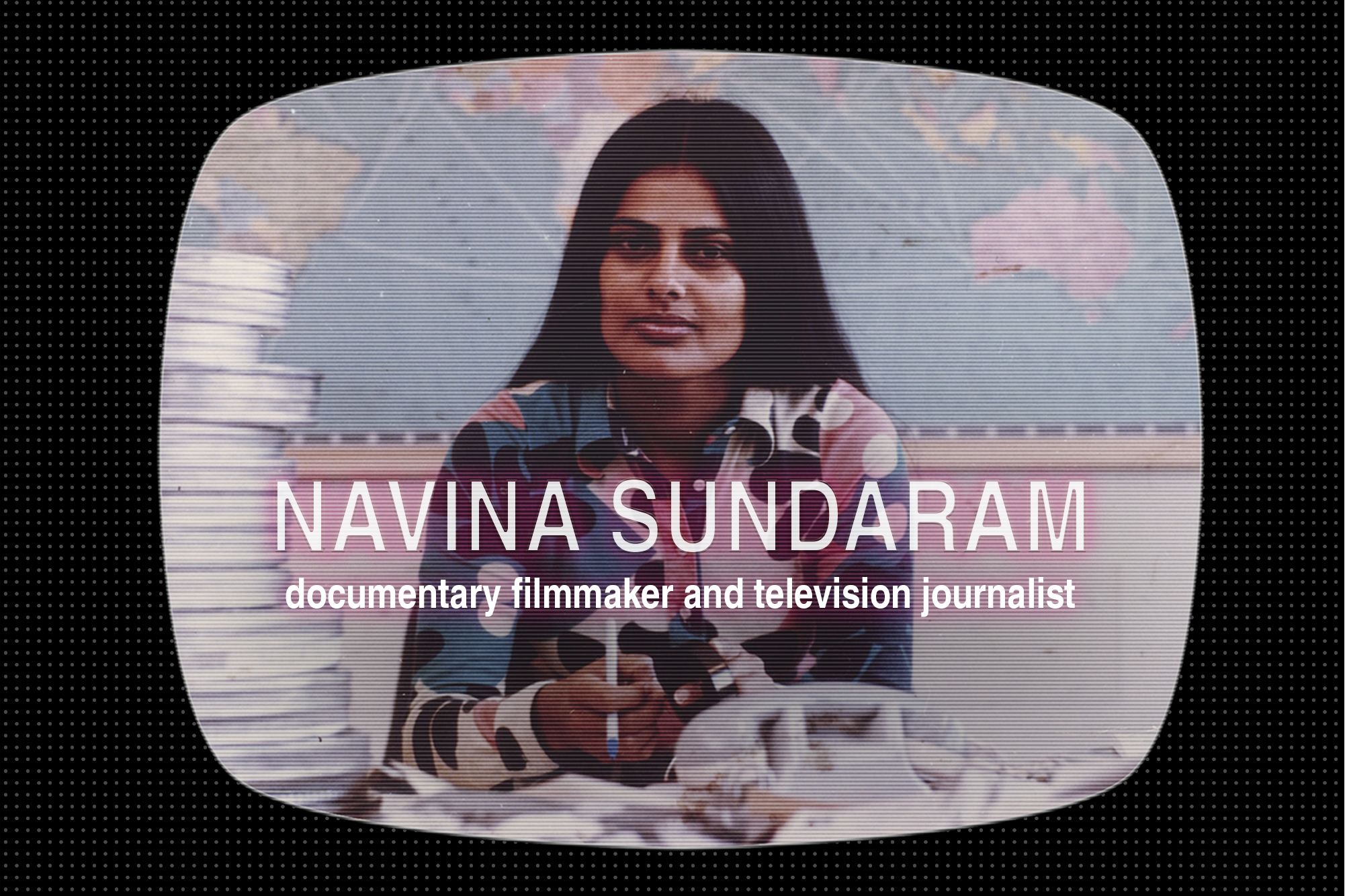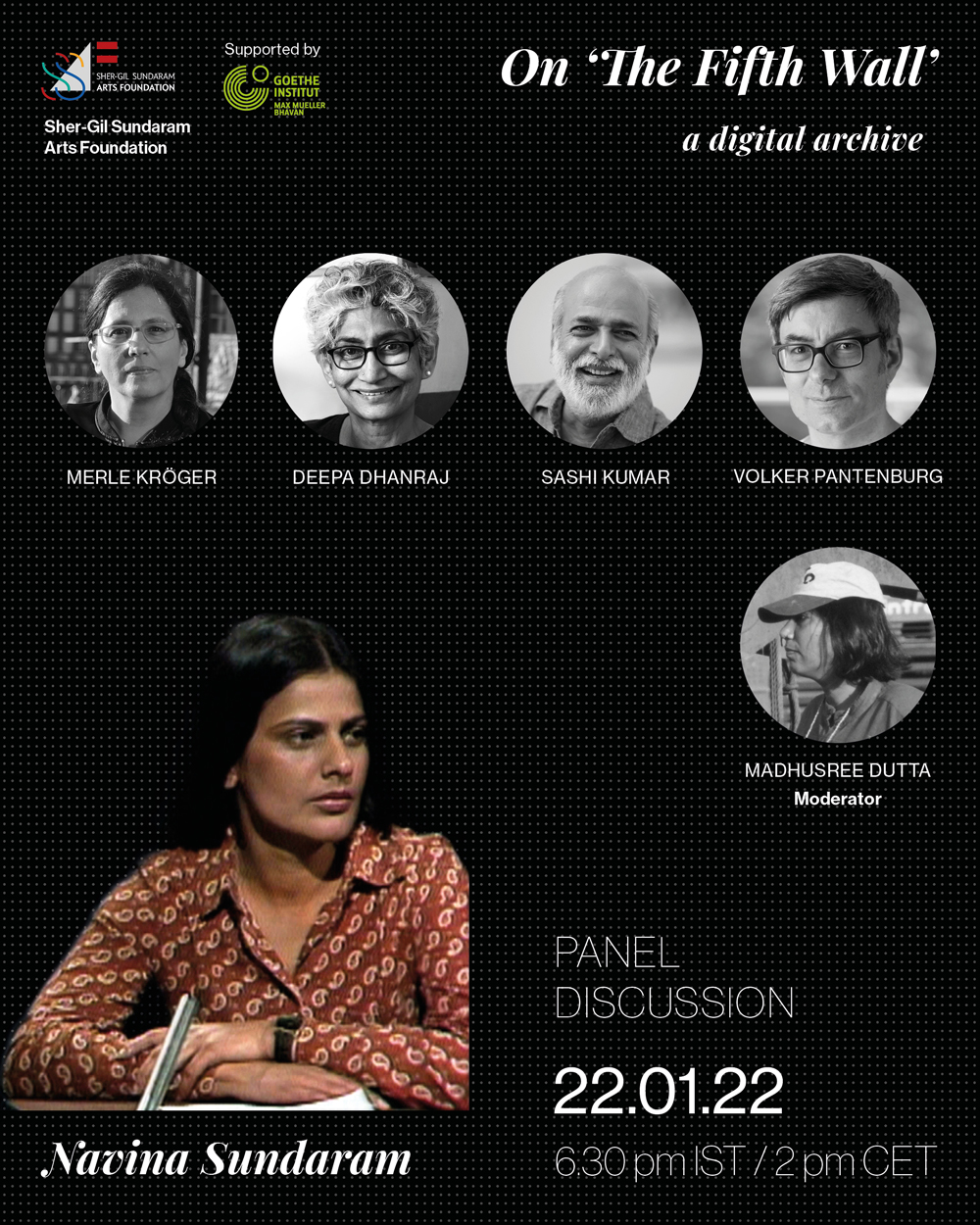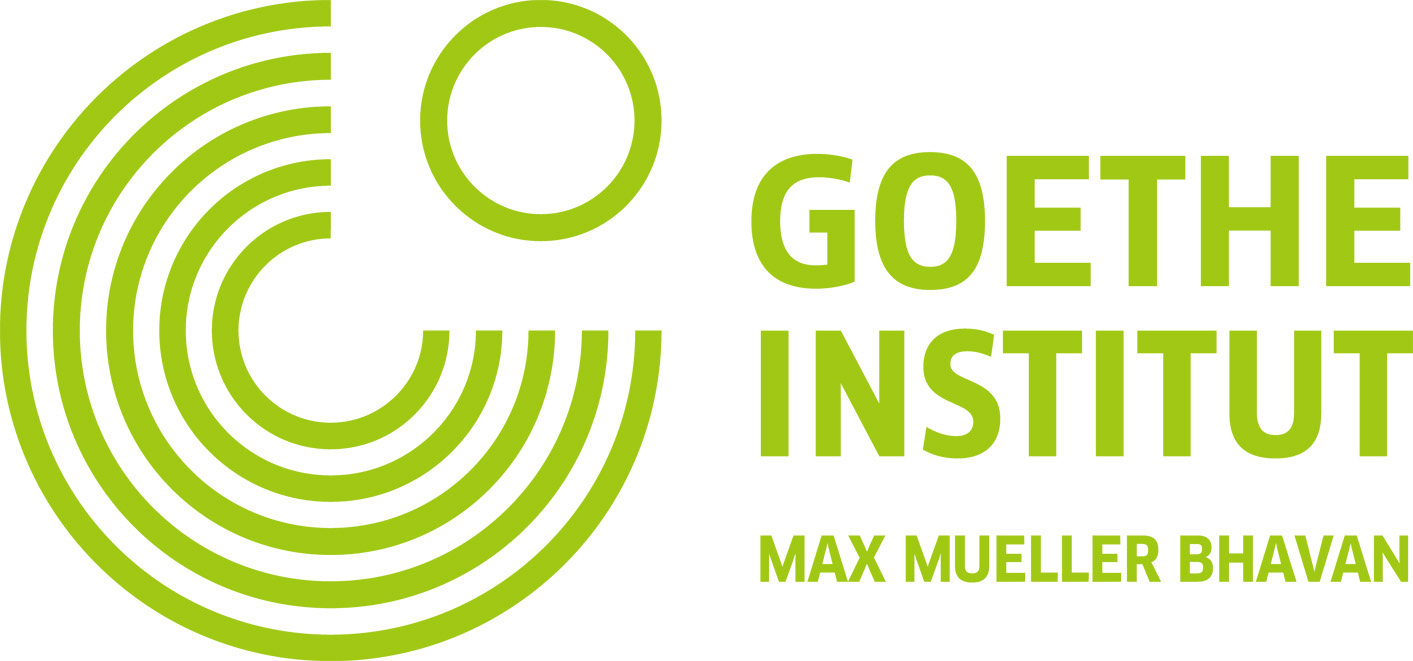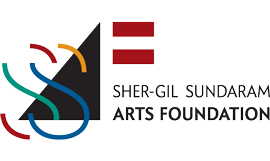
2022 | Panel Discussion | On ‘The Fifth Wall’: a digital archive | Navina Sundaram
On ‘The Fifth Wall’: a digital archive | Navina Sundaram
Panel Discussion
Merle Kröger, Deepa Dhanraj, Sashi Kumar and Volker Pantenburg
Moderated by Madhusree Dutta
Saturday, 22 January 2022, 6.30 pm IST / 2 pm CET

“Tonight, when the two astronauts land on the moon, millions of television viewers will watch them, and it’s basically exactly as far away as Vietnam, on the other side of the living room: the fifth wall.”
(Navina Sundaram, letter to her parents, 21 July 1969)
A panel discussion and screenings to celebrate the digital archive, ‘The Fifth Wall’, created by Merle Kröger and Mareike Bernien: the archive brings together films, reports, texts, letters, photographs, and layers of annotations on Navina Sundaram’s work during her career of 40 years in public television. It is simultaneously a bio-narrative, an evidential media history, and an expansion of the potential of screen and digital formats.
The panel explored issues relating to contemporary archiving practices, documentary activism, the political potential of television journalism, the presence of multiple locations in the work of Navina Sundaram, and media histories. The panelists were Merle Kröger, Deepa Dhanraj, Sashi Kumar and Volker Pantenburg. The panel was moderated by Madhusree Dutta.
Navina Sundaram, born 1945, grew up and studied in New Delhi. She worked as editor and reporter in the current affairs department, foreign correspondent and anchorwoman at North German Broadcasting (Norddeutscher Rundfunk/NDR) from 1970 till 2004. Her films deal with social, political, economic and cultural issues in Europe, South America, Africa, South Asia and Southeast Asia. Her research and reportage on international affairs and political histories reflect her vantage position at the crossroads of critical post-colonial voices emerging from the global South and the post-war reorganization of Western Europe, specifically Germany. Navina Sundaram is co-founder and managing trustee of SSAF.
Merle Kröger, novelist, screenwriter and film producer, lives in Berlin. Together with filmmaker Philip Scheffner, she has been making documentary feature films since 2007. Kröger and Scheffner are co-founders of ‘pong’, a production company with a focus on creative documentary films and videos supported by diverse cultural institutions. In her novels, Kröger combines historical research, personal history and political analysis with elements of crime literature. As curator of the transnational cultural project ‘Import Export: Cultural Transfer between India and Germany’, Austria (2005), she began a long-term collaboration with the filmmaker and television journalist Navina Sundaram.
Deepa Dhanraj is a researcher, writer and documentary filmmaker. She was one of the founding members of Yugantar, a feminist film collective that made films centring the political organizing of women domestic and factory workers. She is a founding member of The Oral History Association of India. She is co-author, with K. Lalita, of Rupture, Loss and Living: Minority women speak about post conflict life (2016) – a collection of oral narratives of Muslim women survivors of sectarian violence. Dhanraj is currently working on an audio-visual archive of the anti-caste students’ movement that arose in 2016 after the suicide of the Dalit research scholar Rohith Vemula.
Sashi Kumar is a journalist, filmmaker and media entrepreneur. He founded and chairs the Media Development Foundation which administers the Asian College of Journalism. He was among the earliest newscasters in English on India’s national television, Doordarshan, and has anchored and produced numerous shows, documentaries and features for Doordarshan. In 1992 he launched Asianet, India’s first satellite TV channel in a regional language (Malayalam) and the first state-wide cable TV network in Kerala. In 2004 he scripted and directed Kaya Taran, a film based on the 1984 anti-Sikh riots and the 2002 Gujarat riots.
Volker Pantenburg is a professor of Film Studies at the University of Zürich. He has published widely on essayistic film and video practices, experimental cinema and contemporary moving image installations. His books in English include Farocki/Godard: Film as Theory (2015), Cinematographic Objects: Things and Operations (2015, editor) and Screen Dynamics: Mapping the Borders of Cinema (2012, co-editor). In 2015, he co-founded the Harun Farocki Institut – a platform to engage with Farocki’s practice, and initiate projects that explore contemporary media and image cultures – where he is currently involved in a research project around Skip Norman’s life and work.
Madhusree Dutta is a filmmaker and cultural producer living in Mumbai. She was executive director of Majlis Cultural Centre, Mumbai, from 1998 to 2016, and artistic director of the Academy of the Arts of the World in Cologne, Germany from 2018 to 2021. Her non-fiction films address issues of citizenry, identity, memory practices, urban cultures and public cultures. Madhusree Dutta has initiated several analogous and digital archive projects in India and Germany. She has been awarded, nationally and internationally, for her films, activism and arts management.
Acknowledgements
Merle Kröger and Philip Scheffner (pong, Berlin), Mareike Bernien
English translation and subtitling by Rubaica Jaliwala and Onir (Anticlock Films, Mumbai)
Support for English translation and subtitling, Goethe-Institut / Max Mueller Bhavan

Screenings
The selection of documentaries and television reports by Navina Sundaram can be viewed online from 17 to 31 January 2022. The films are in German with English subtitles.


